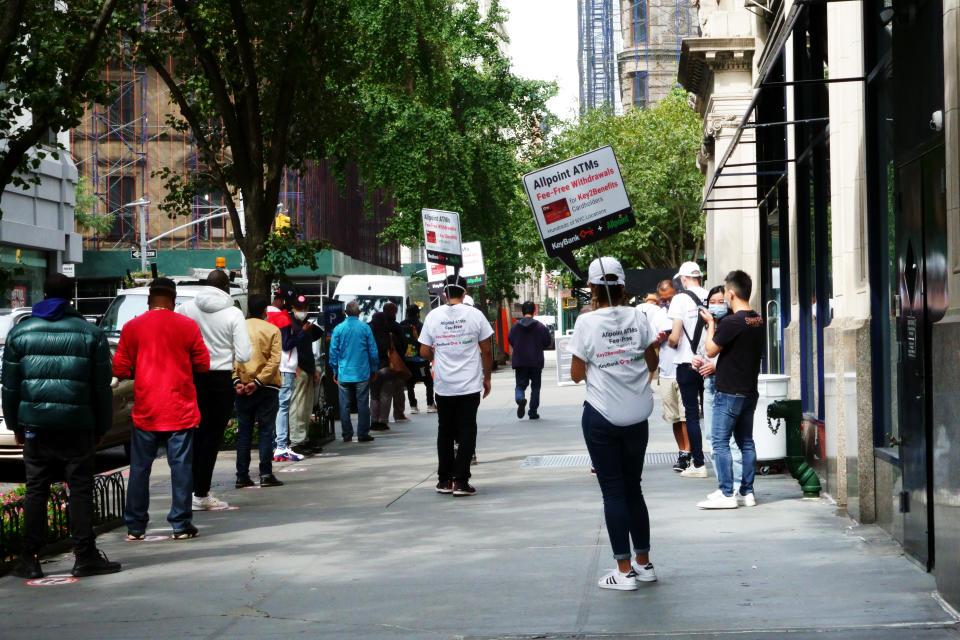
The latest decline in weekly jobless claims masks what’s really happening with many of the country’s unemployed: Millions of workers are out of work and can’t receive any benefits.
About 3.8 million jobless individuals can’t collect because they exhausted their pandemic or state jobless benefits last year, according to The Century Foundation a progressive, nonpartisan think tank.
“Yes, people have gone to work, but there’s still a large number of unemployed,” Andrew Stettner, senior fellow for The Century Foundation, told Yahoo Money. “There are probably more people out there that have run out of benefits and haven’t found a job than there are currently on benefits.”
An estimated 1.6 million workers were on benefits in mid-January and another 260,000 applied for the first time this week, the first decline in applications in four weeks, according to the Labor Department.
“So both the initial claims figures and continued claims figures are depressed from how they really are given this stage in the pandemic,” Stettner said.
These individuals won’t be eligible for unemployment benefits unless they find a job, work a minimum period of time, and get laid off through no fault of their own, Stettner said. These workers previously relied on pandemic-era unemployment programs that expired in September, one of which extended the duration of unemployment benefits beyond the maximum that states provided.
“Certain individuals may have some other work history they could tap into to unlock that eligibility,” Stettner said. “This varies state by state, but as a general rule of thumb, you are going to have to have worked at least six of the past 15 months to be able to get benefits.”
The unemployment rate fell to 3.9% last month and a recovering economy added a record 6.4 million jobs at the end of last year. Still, the U.S. economy remains sensitive to volatility due to increasing inflation and the ongoing pandemic, most recently the rapid rise of the omicron variant.
“You can’t look at the figures out there and say, ‘wow… this is an amazing economy,’” Stettner said. “No, we still have a lot of growth that needs to be done just in order to rehire those people that lost work because of COVID.”





























